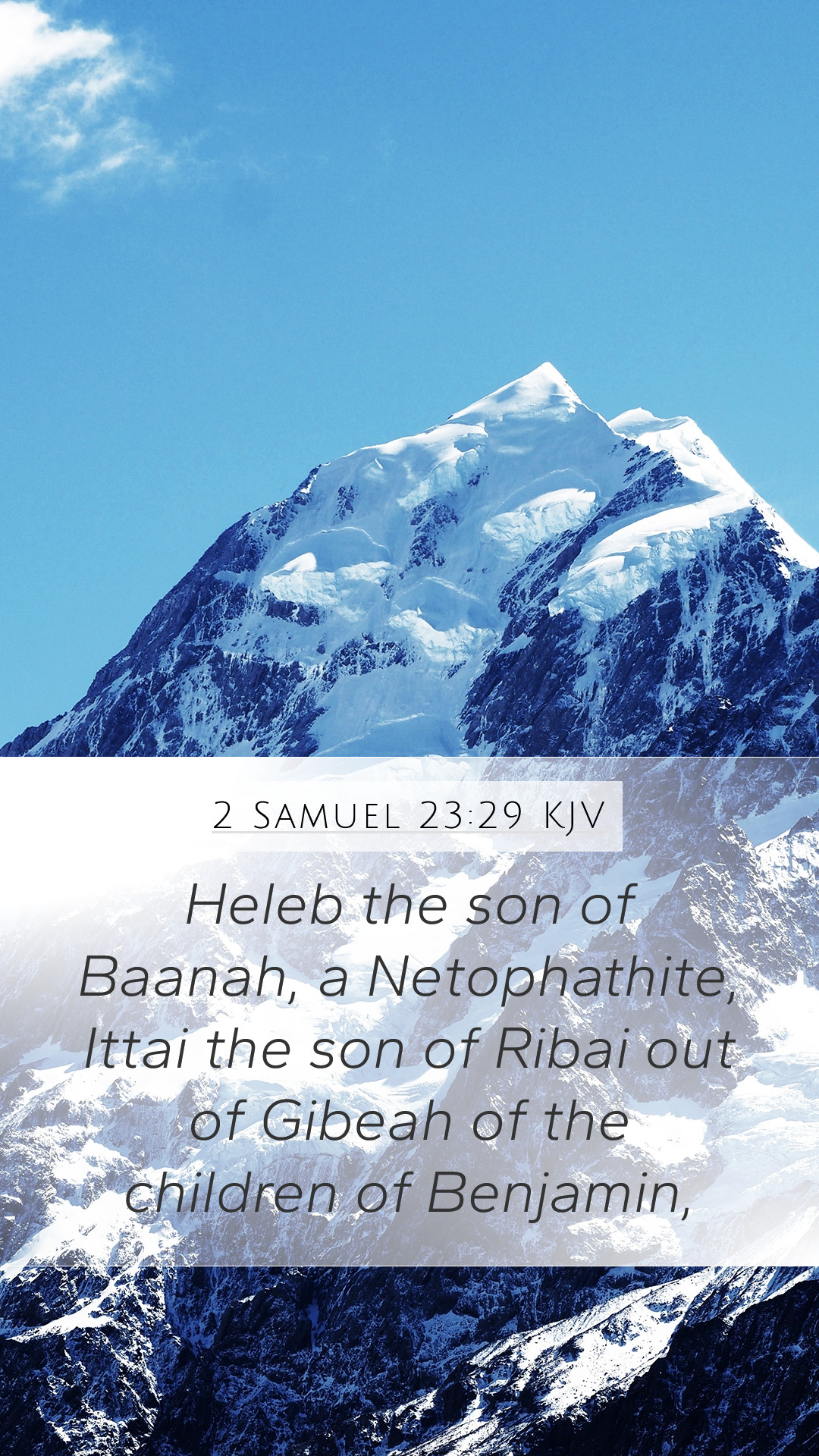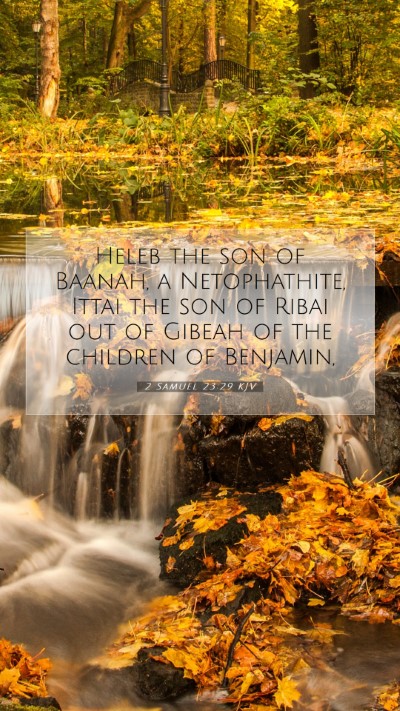Understanding 2 Samuel 23:29
Bible Verse: 2 Samuel 23:29 - "He was from Mahanaim, the son of a mighty man, whose name was Jashobeam, and he had a spear like a weaver’s beam."
Verse Analysis and Commentary Insights
The verse provides a brief historical reference to one of David’s mighty warriors, establishing the significance of this figure within the context of David's reign. According to various public domain commentaries, such as those by Matthew Henry, Albert Barnes, and Adam Clarke, three key themes emerge from this passage:
- Character of David's Warriors: The passage introduces Jashobeam, highlighting the valor and strength of David's forces. Matthew Henry notes that these warriors were not only skilled but displayed loyalty and exceptional bravery, suggesting that true might in the kingdom was measured by character as well as physical strength.
- Symbolism of the Spear: The mention of the spear being "like a weaver's beam," as stated by Albert Barnes, symbolizes not just the strength of the warrior but also indicates the uniqueness and formidable quality of his weapon. This description could imply that he was not just any fighter but one whose prowess was unmatched, serving as a metaphor for the formidable nature of the opposition faced by David’s forces.
- Historical Context: Adam Clarke emphasizes the importance of understanding the historical ramifications of such characters within the broader narrative of Israel's formation and struggles. Jashobeam represents the significant military leadership in David's time, suggesting that the success and establishment of Israel were deeply tied to the capabilities and situational contexts of individual knights and their interactions with divine providence.
Deeper Meaning and Reflection
When interpreting this verse, it is essential to consider the qualities of leadership and loyalty exemplified by David's mighty men. The mention of specific names and attributes speaks not only to their military prowess but also invites readers to reflect on the qualities of commitment and bravery in the Kingdom of God. This verse, therefore, forms a basis for understanding how God elevates individuals who are faithful stewards of His kingdom.
Additionally, understanding Scripture, especially regarding the context of biblical warfare, can lead to insights applicable to modern-day faith dynamics. Readers can ponder questions like: How does one's commitment to faith reflect in challenging circumstances? What does it mean to be equipped spiritually in today's world akin to the warriors of David's time?
Application in Daily Life
This passage calls believers to emulate the strength and commitment of Jashobeam in their walk of faith. In practical terms, applying this verse to daily life can involve:
- Courage in Trials: Just as warriors showed physical courage, individuals today are called to display spiritual courage in facing personal challenges and societal issues.
- Building Spiritual Resilience: Reflection on one's gifts and how they can be used in service to a greater cause mirrors the mighty men’s dedication to king and country.
- Community and Brotherhood: Just as David's men supported one another, individuals in faith communities can foster a culture of support and encouragement among themselves.
Related Bible Cross References
- 1 Chronicles 11:11 - This verse mentions Jashobeam and emphasizes his leadership role among David’s mighty men.
- 2 Samuel 23:8-39 - A passage that lists and describes David's mighty men, providing more context to their characters and deeds.
- Hebrews 11:32-34 - This New Testament reference speaks to the faith and valor of those who exhibited great courage akin to the warriors of the Old Testament.
Conclusion
In summation, the interpretation of 2 Samuel 23:29 sheds light on the importance of strength, loyalty, and bravery within spiritual and communal contexts. By studying this verse alongside commentaries and relating to personal experiences, believers can better appreciate biblical narratives while enriching their own faith journeys through understanding Scripture.


